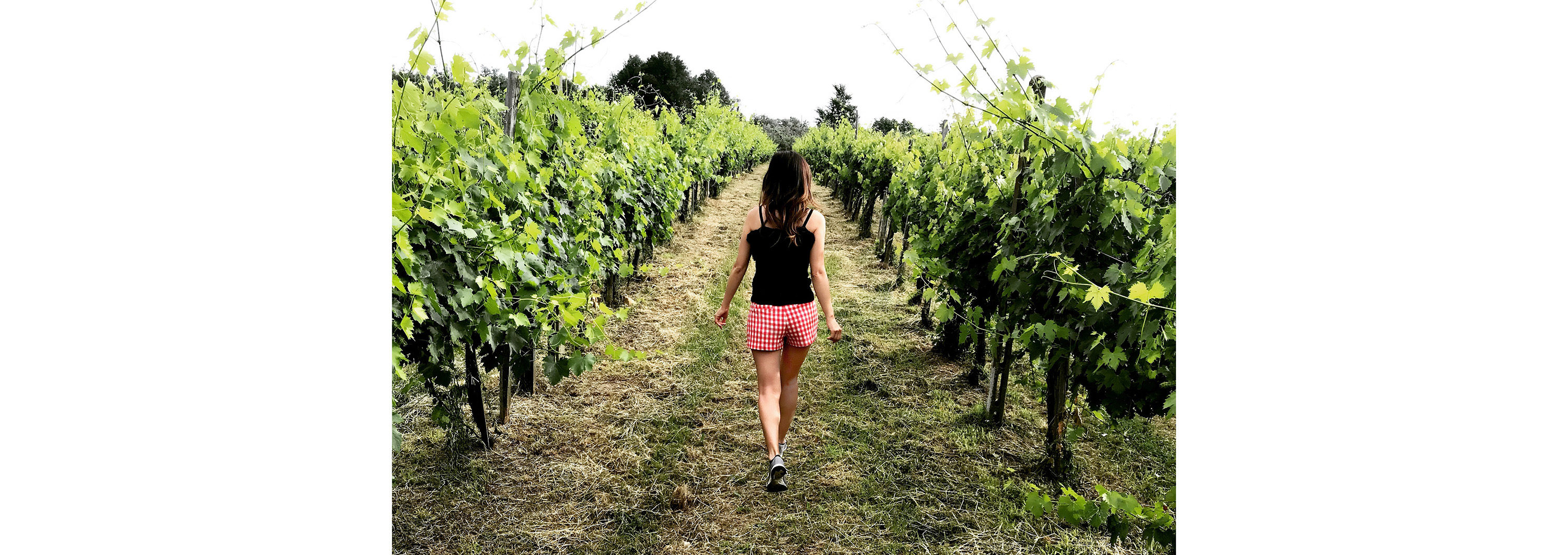Shaped like a boomerang of sorts, Croatia twists around the small land of Bosnia and Herzegovina, and this strangely-drawn boundary provides the joined countries with access to the Adriatic Sea. From the town of Kaštela along the Dalmatian Coast, we left early in the morning, drove into the rough, limestone-rich hills of Croatia and passed through the border crossing in Croatia to enter into Bosnia and Herzegovina. While most border agents speed this process along, travelers from outside of the European Union inevitably slow things down because passports are taken for inspection (and, stamping!).Video Player00:0000:08
Medjugorje
We first stopped in Medjugorje, a small town not far from the Croatian border in the Herzegovina region of Bosnia-Herzegovina. Medjugorje is notable because in 1981 six children “visionaries” were said to have seen an apparition of the Virgin Mary while playing on a nearby hill.
Commonly referred to as “Our Lady of Medjugorje,” Catholics believe the apparition of the Virgin Mary continues to bring messages to the visionaries. This makes Medjugorje a major pilgrimage site for Catholics all over the world to experience what is undeniably a very spiritual spot, comparable to Lourdes and Fatima.

We attended a Catholic mass at 10 am. Father was from Chicago and alongside him on the alter were six to eight other priests – each presumably from other parts of the world. He talked about his “calling,” which came at a time when he said he appeared to look nothing like the church-going type: Hair down his back, cigarette in mouth, playing music on the streets and nurturing a long-distance girlfriend in France. His casual nature was welcomed by all and his message was strong.
The church itself is sizable, but not that much larger than one found in a major city. However, because of the potential crowd that it draws, the mass is also broadcast over loudspeakers into the town and the immediate area surrounding the church can hold an estimated 5,000 people. The largest group of individuals who visit are from Italy. They have the Vatican there, but Medjugorje has the sightings and also the largest number of confessionals. Once the 10 a.m. mass was over, another mass started around 11:15, this time in Italian.
Brkić: Herzegovina wines
It’s quite clear that the people of Bosnia-Herzegovina are deeply vested in their land… and the wines in an almost spiritual way. But that doesn’t mean that tradition and convention is for everyone. After visiting Medjugorje, we drove a little ways to visit the winemaking family by the name of Brkić. The wines of Brkić are about as far-removed from conventional as one can get. Located in the small town of Čitluk, a mere speck at the heart of Herzegovina wine production, Josip Brkić and his twin sons are producing fermented juice made of of Žilavka (white) and Blatina (red) that are not only as close to truly representative of the region, but also delicious and unique.

We sat down in his comfortable winery to taste several of the Brkic wines and listen to Josip and his sons tell their story.

Over 15 years ago, during a trip to Italy, Josip learned about biodynamic practices and Steiner’s farming philosophy and fell in love with the concept, which changed the course of his winemaking for good. Brkić is probably Herzegovina’s only biodynamic grower at the time of this writing this post. Going against all conventional wisdom, Brkić converted the family’s four hectares and set out a new path. According to Josip, being one with the land, means to be thoughtful and and to fully embrace one’s surroundings. He said something to the effect that all he needed were his hands and grapes [to make wine]. Of course, he understands that organic and biodynamic farming is risky, and not for everyone but it makes complete sense to him, thereby he creates a spirit that revolves around his wines and he radiates his belief in confidence.

Josip Brkic specializes in the indigenous white aromatic Žilavka and rustic red Blatina from his region of Čitluk in Bosnia/Herzegovina. Utilizing organic and biodynamic principals and the lunar calendar, Josip respectfully fulfills the responsibilities to the land with his desire to make wines of terroir. Greda is the name of the plateau vineyard where the Blatina fruit was sourced. Fermented by native yeast in local, Bosnian oak to soften the angular nature of the grape it is an understated red of elegance, style with a little rusticity.
Mjeseċąr, which means the moon walker in Bosnian, is Josip’s first wine made in a complete biodynamic way and supported by the power of the moon. Moon walker is an “orange wine” (made from white grapes with extended skin contact). All the work in vineyard was performed according to the moon phases, from pruning, harvesting, grape selection, to the wine itself. Tasting it was like tasting passion.
The winery itself is comfortable and inviting. Outside and in the back and down the stairs is the wine making facility and cellar. Nothing fancy, but impeccably clean and with a feeling that their life’s work all happens here and in their nearby vineyards.


Herzegovina is spiritual in more ways than one and the feeling of connection is strongly magnetic. Coming here was a pilgrimage that satisfied and nourished all the senses.
